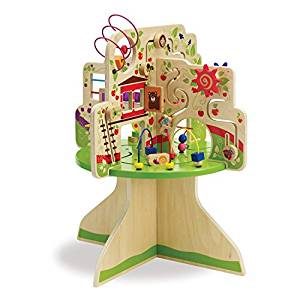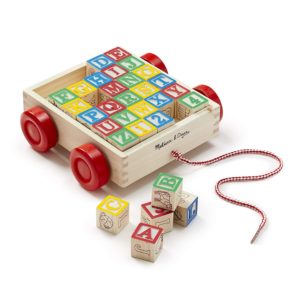There is no getting around it. Having a baby can put some strain on your relationship. In the first year of your child’s life, you relationship is going to be tested, often, and in a lot of different ways. You and your partner need to decide what your relationship looks like now, how you want to parent together, and what your priorities are.
Breakdown
Maybe it’s the wrong way to start this blog, but seriously, I talk to soooooo many women about their relationship in the first year that I want to highlight the most common breakdown points. These won’t apply to everyone, but they certainly apply to many.
Expectations
This comes down to having different expectations. Perhaps you have different expectations for how your partner spends their time, or interacts with your child, or helps out. Whatever this might be, some of the greatest pains in a relationship are differing expectations. Take the time to discuss expectations. If you both work, who is taking baby to school, who is picking up? Is one person responsible for cooking and cleaning or is this a shared responsibility.
Specifically, just because it comes up so often I want to highlight expectations around free time. I know a lot of women who work, come home, take care of baby, and at the end of the day, they are cleaning up and preparing for the next day while their spouse goes downstairs to play video games or watch TV. This builds up a lot of resentment because there is a silent expectation that their spouse help.
The Invisible Load
The invisible load is a set of silent responsibilities carried by one parent, typically the mom. It’s the responsibility of planning meals and making appointments. It’s the mental list of things to do, including what size clothes your child wears and when they might need new clothes, has the dog been fed, paying bills, the list goes on and on. Even having to ask your partner to help, instead of them knowing what needs to be done, is an example of the invisible load.
The invisible load is one that many women carry to the point of deterioration. Worst of all, rarely do their partners see it. They don’t realize that by saying ‘let me know if you need help’ that they are adding to this invisible load because you are still responsible for tracking and maintaining what needs to be done.
Priorities
Plain and simple, everyone has different priorities. What you need to determine are what your priorities are and what your partners are. The two of you may have to shift them. So although the house needs to be picked up, maybe you find time to be together instead. Are your kids your top priority? Where does your relationship fall in this list? What about work?
Asking these types of questions can help you decide what is most important for you and your partner. There isn’t a right or wrong answer. It’s more about knowing.
Finding Balance
As you establish priorities and your day to day routines, you have to find a balance. A balance for your child, for your relationship, your work. All of it! There is no right or wrong, but it’s about working together.
Communication
If you feel like you are sensing a theme, it’s probably true. The vast majority of these problems break down to a lack of communication. Not just talking, but also listening. Knowing what the needs of both individuals in the relationship are is paramount for your success. If you can’t make time for each other, and you can’t listen, your relationship is doomed.
Parenting Together
Alright, it’s time to take some positive steps. It’s time to parent together. This means having a united approach to parenting your child, managing outside influences, and showing up together. A huge part of your relationship now is going to include being a parent. Discuss how you want to to handle things like discipline, school, meltdowns, and even meals.
I cannot encourage enough talking about the invisible load and seriously discussing an appropriate divvying of tasks. This is true for both working parents and a situation where one parent stays home. If one cooks, the other cleans. How do you ensure you both get down time?
These conversations matter because you are, right now and moving forward, demonstrating to your child what an appropriate relationship looks like. If you show them that the woman should do all the cooking, cleaning, and parenting while the male watches TV and only acts as a disciplinarian, what sort of model are you being? Is it the sort you want to be?
All I can say is that it took two people to create your baby, so it should be the responsibility of two people to raise it. You deserve happiness, and that means finding a way to parent together.
Making Time
Parenting takes a lot of work. It takes time and energy. So at the end of the day, or in the middle of it, or just whenever you can, you have to make time. Make time for you and your partner. Make time to remember why you are in love with each other, why you decided to have children together.
Date night shouldn’t fall to the side. Yes, in the first year it might be a little shorter, especially if you are nursing, but make time for each other. Let baby stay with grandma for a few hours. Or even just carve out some sacred time for just the two of you.
Sex
As much as making time is about emotional connection, it is certainly about physical connection as well. Now immediately after birth, you should hold off on sex for awhile. Usually six weeks or until your doctor says go ahead. Make sure you have figured out birth control if you don’t want to get pregnant again as well (and no, nursing by itself is probably not adequate birth control).
I’m not saying you have to get all crazy in the bedroom, or that all your free time has to be about sex. I’m saying make some time for it, just like you do for the emotional connections. I know it’s easy to get caught up in the day to day, but I swear a good sex life sometimes is the key to a good relationship.
Managing Family and Friends
Ever notice that everyone and their mother has opinions about how you should exist as a cohesive family unit? I’m not trying to be ironic here, as you read a post from me regarding how to manage your relationship. I’m just saying, unwanted advice is annoying at best.
Discuss with your partner how you are going to manage your family and friends. Have it planned so that if it comes up, you both know exactly how to act. The last thing you want is to be in the middle of an argument with you mother-in-law regarding how you have chosen to feed your baby only to find out that your partner is terrified of standing up to their mother.
We always agreed that I would manage my family and friends and my kids’ dad would manage his family and friends. This primarily worked well, although I’m sure I’ve said a few things that have pissed off his mom more than once. The point is, this is your relationship, and no one else gets to tell you how to be in it or to raise your child.
Getting Support
When to Call it Quits
Now despite everyone’s best efforts, some individuals find themselves in a situation where the person they had a child with is not the right person for them in the long term. I feel like there are two categories here. The first is the worst, where the other person in your relationship is unable and unwilling to be a good partner OR parent. They are not consistent and will not partake in appropriate child rearing. In this case, it is likely best to cut your losses and leave. Involve the law and the court systems if necessary.
The second option is a little less pessimistic. It’s the idea that, although you and the other person may not be able to reconcile your relationship, you are both good parents. The two ideas can be regarded completely separately. In this instance, I encourage you to work out a separation plan that works for all parties involved. The best way to do this is to separate before you hate each other’s guts. Once you hate someone, it’s very hard to not make decisions around your children that unfairly affect them. But if you leave while you know things are not working, but you don’t despise them, it makes it much easier to work through parenting problems and find a way to co-parent effectively.












